- Home
- |
- About
- |
- Programs
- |
- Team Manitoba
- |
- Get Involved
- |
- Resources & Education
- |
- News
- |
- Events
- |
- Contact
Awards
Tom Longboat Awards
Recognizing Indigenous athletes for their outstanding contributions to sport in Canada
The Tom Longboat Awards were established in 1951 to recognize Indigenous athletes for their outstanding contributions to sport in Canada. With a few exceptions, the Awards have been given out every year since its inauguration. It remains the longest standing and one of the most prestigious awards for Indigenous athletes in the country.
As a program of the Aboriginal Sport Circle, the Tom Longboat Awards provide a forum for acknowledging the growth and strength of the Indigenous sport movement in Canada and its tremendous impact on the sport development from community level participation to elite level competition.
Full list of award recipients can be found here.
2024 Regional Recipient of the Tom Longboat Award
Chantal Larocque-Fritzche, Ball Hockey
The Manitoba Aboriginal Sports & Recreation Council (MASRC) is pleased to announce that Chantal Larocque-Fritzche has been selected as the regional recipient of the prestigious 2024 Tom Longboat Award for Manitoba. This award, named in honour of one of Canada's most iconic Indigenous athletes, recognizes Indigenous athletes who demonstrate exceptional athletic achievement, leadership, and a strong commitment to their communities. Chantal's accomplishments, both on and off the field, serve as a powerful example of resilience, dedication, and cultural pride.
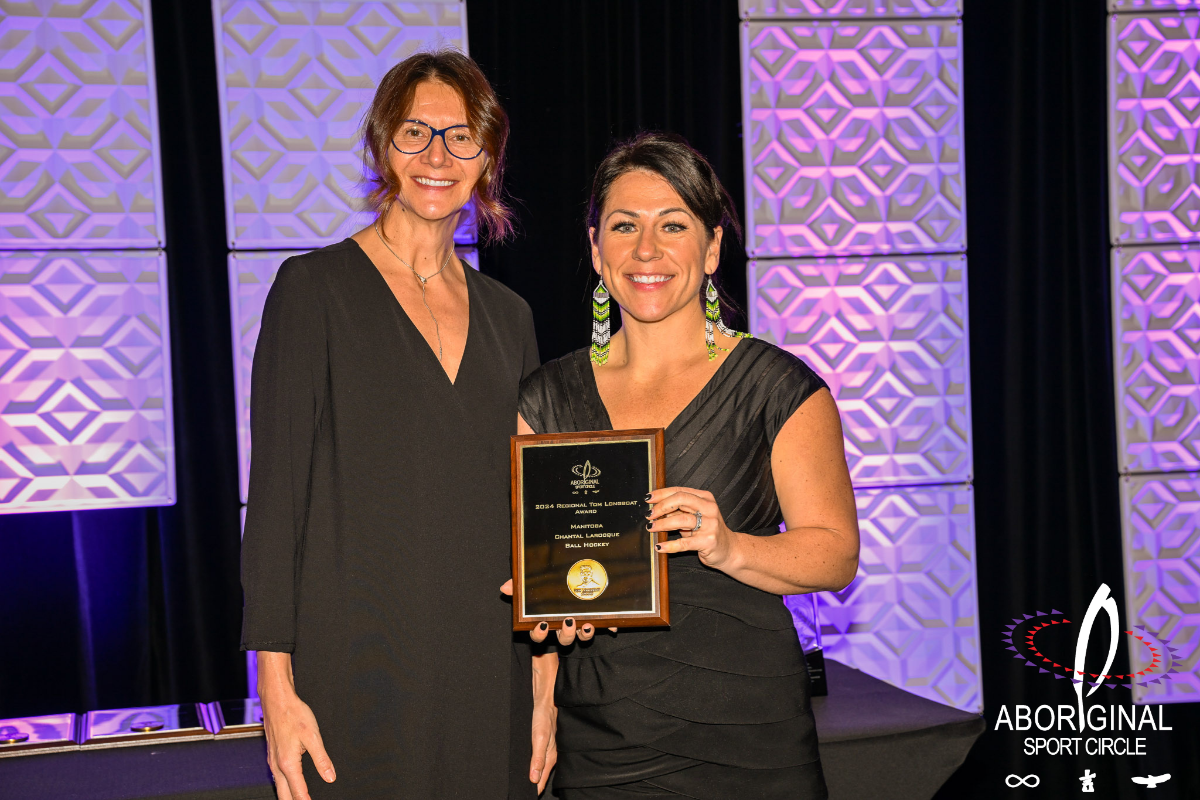
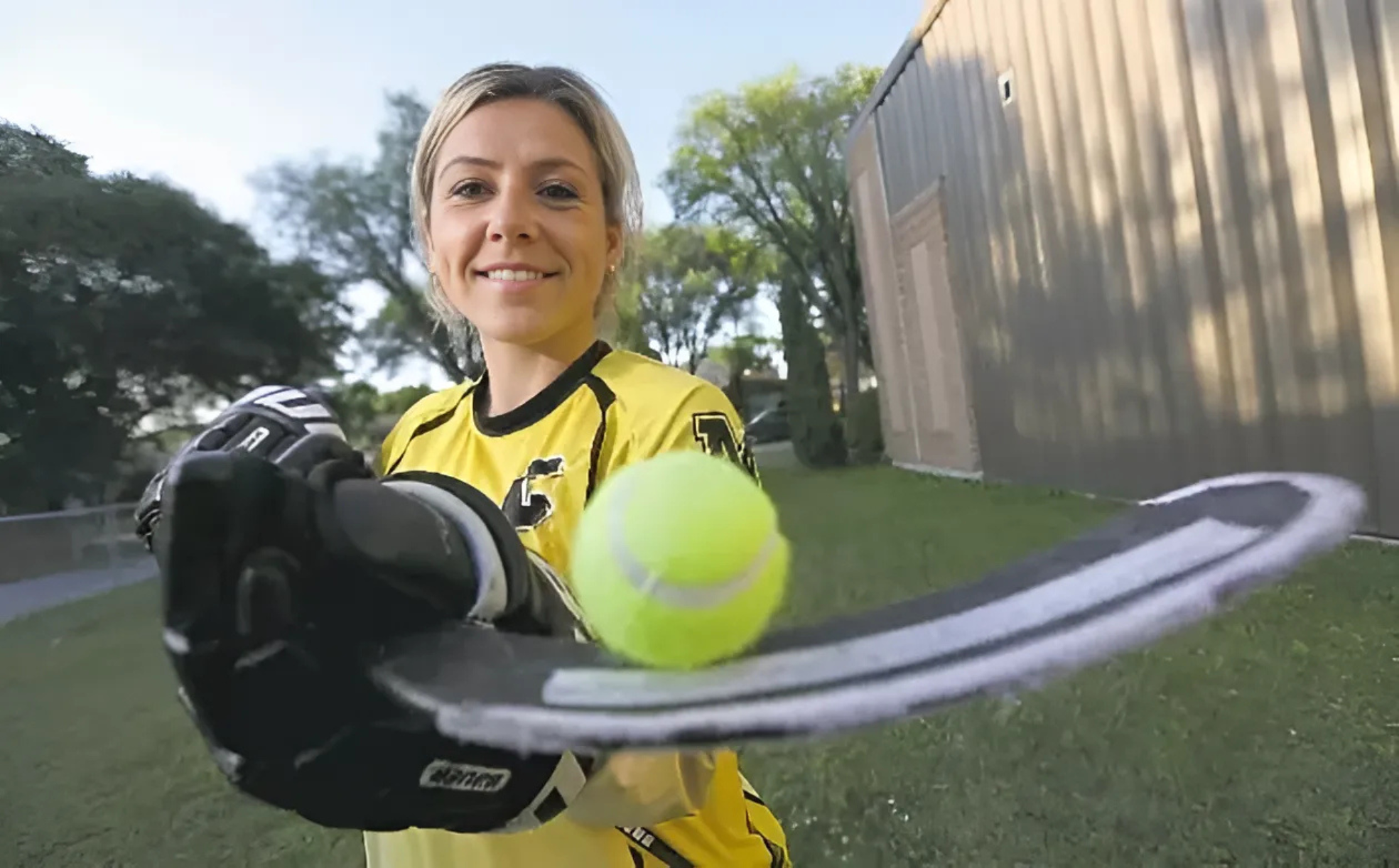
Chantal's athletic journey is characterized by a disciplined approach to continuous improvement and a holistic focus on her physical and mental well-being. She employs a well-rounded training regimen that balances strength training, cardiovascular conditioning, and CrossFit to enhance her performance. However, Chantal's approach is not solely about pushing physical limits. She also prioritizes injury prevention and long-term athletic health, incorporating active recovery, flexibility, and mobility work into her routine to ensure sustained performance and longevity in her career.
Her commitment to a holistic lifestyle extends beyond physical fitness. Chantal places great emphasis on nutrition, carefully managing her diet to fuel her body for optimal performance. She also understands the importance of mental and emotional recovery, integrating mindfulness and self-care practices into her daily life. This balance enables her to perform at the highest levels while maintaining her overall well-being.
What distinguishes Chantal as a leader in her field is her role as an advocate and role model for Indigenous athletes. She proudly wears traditional beaded medallions during competition, a meaningful gesture that both honours her heritage and raises the visibility of Indigenous culture within the sporting world. This commitment to cultural representation underscores the importance of identity and tradition in her approach to athletics, inspiring others to embrace and celebrate their own cultural roots.
In addition to her athletic success, Chantal is deeply dedicated to community service. She actively volunteers as a coach and mentor, sharing her knowledge and experiences with both Indigenous and non-Indigenous athletes. Through these efforts, she fosters the development of future athletes, encouraging them to pursue their dreams and overcome the challenges they may face. Chantal also engages in storytelling, using her own journey as an Indigenous athlete to motivate others and demonstrate the power of sport to create positive change.
Chantal's connection to her heritage is central to her personal and athletic identity. She maintains a strong spiritual grounding through practices such as prayer and spending time in nature. These traditions provide her with the sense of purpose and balance needed to navigate the demands of her career while remaining deeply connected to her cultural roots.
Chantal's athletic accomplishments are a testament to her talent, hard work, and leadership. Among her recent achievements are:
- 2023 Gold Medal at the International Street & Ball Hockey World Championships (Masters) (USA)
- 2023 Player of the Game at the ISBH World Championships (USA)
- 2023 All-Star Selection at the ISBH World Championships (USA)
- 2024 Top Forward at the Canada Ball Hockey National Championships
- 2024 All-Star Selection at the Canada Ball Hockey National Championships
- 2024 Gold Medal at the Canada Ball Hockey National Championships
- 2024 Captain of Team Manitoba Masters
These accolades underscore Chantal's exceptional skill, leadership, and dedication to excellence. As team captain, she leads by example, inspiring her teammates both through her performance and her commitment to fostering a strong sense of camaraderie and cultural pride within the team.
Chantal Larocque-Fritzche embodies the values of strength, resilience, and community that define Indigenous athletes. Her leadership both on and off the field exemplifies the profound impact that Indigenous athletes can have in breaking down barriers, inspiring others, and promoting cultural understanding. For Chantal, success is not merely about individual achievement but about uplifting others, sharing knowledge, and remaining firmly rooted in her culture.
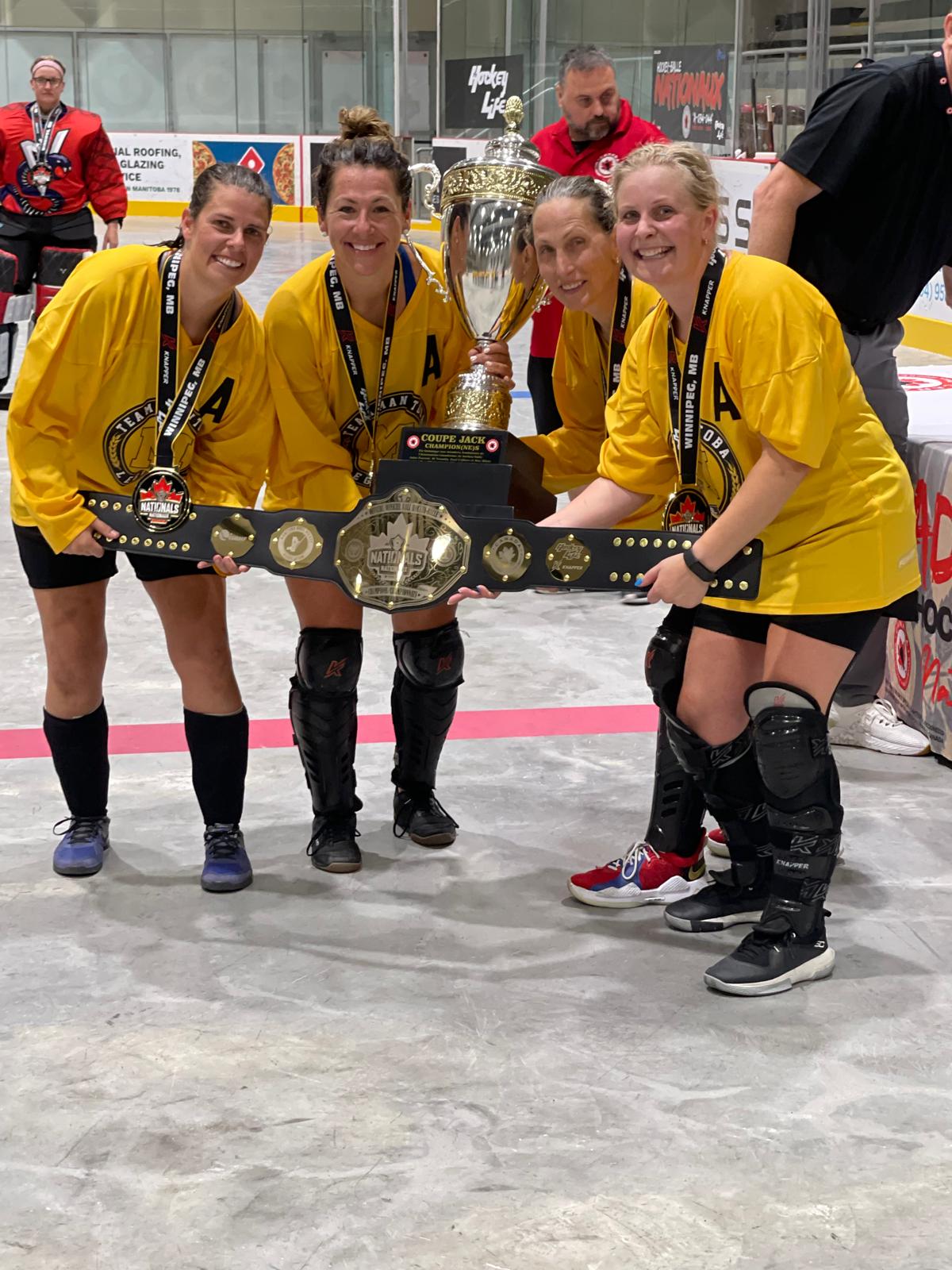
2024 Regional Recipient of the Tom Longboat Award
Luke Enns, Sprint Kayak
The Manitoba Aboriginal Sports & Recreation Council (MASRC) is honoured to announce Luke Enns as the regional recipient of the 2024 Tom Longboat Award for Manitoba. This distinguished award celebrates Indigenous athletes who demonstrate excellence in sport, leadership, and community involvement. Luke's dedication to his sport, his Métis heritage, and his commitment to giving back to his community make him a truly deserving recipient of this recognition.
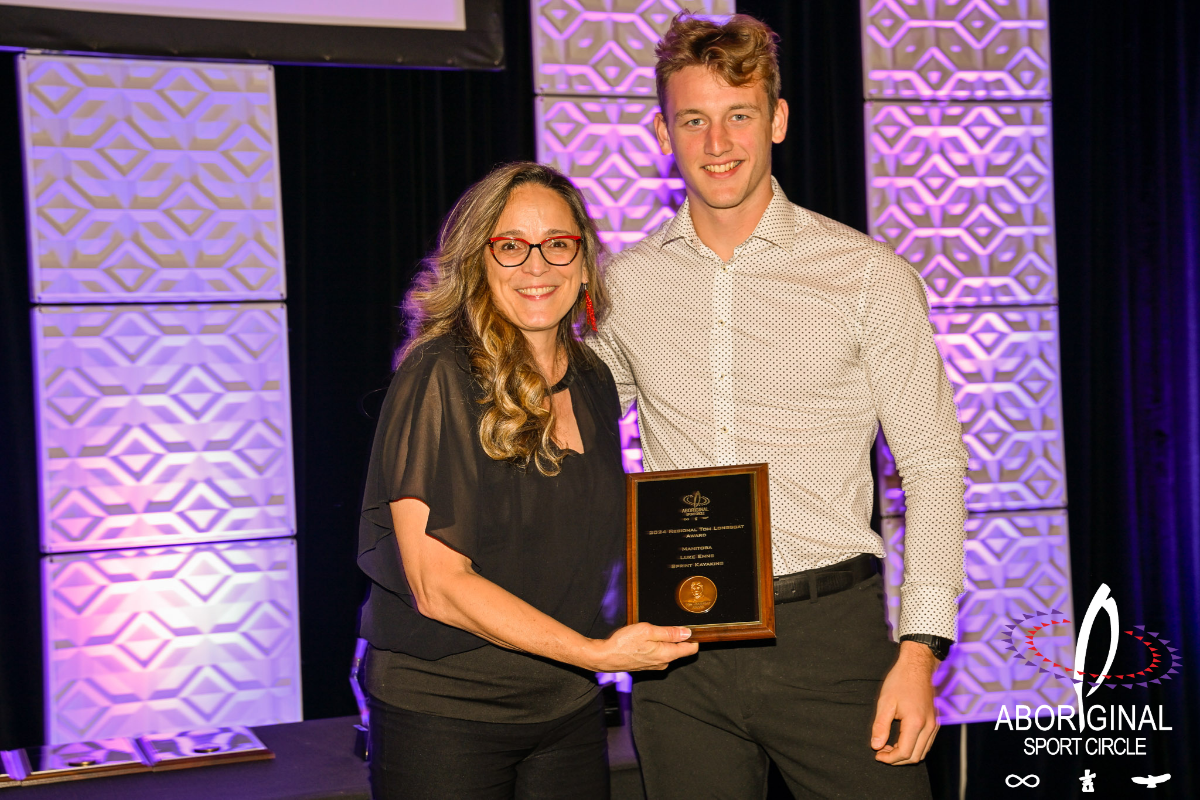
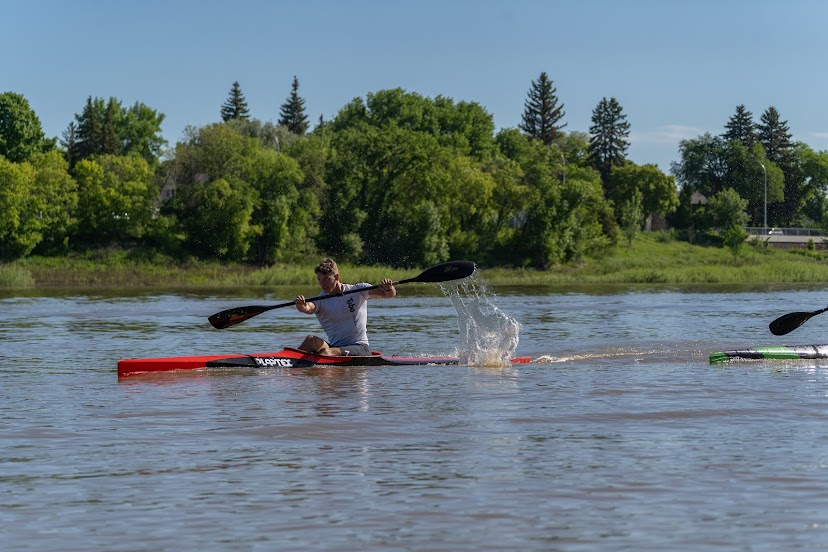
Luke has distinguished himself as a leading athlete in competitive canoeing and kayaking, achieving remarkable success on both national and international stages. As a member of the Canadian National Team, he represented Canada at the 2024 Sprint Canoe Junior World Championships in Plovdiv, Bulgaria, earning a 6th place finish in the Men's Kayak 4's event. Luke's impressive athletic résumé includes a gold medal in Men's Kayak Singles at the 2022 Sprint Canoe Nationals, multiple podium finishes at the 2023 North American Indigenous Games, and representation at the 2023 Olympic Hopefuls Regatta in Poznan, Poland. He has also earned gold at the International Bratislava Regatta and secured podium finishes at the Italian Trials, among other international accolades.
In addition to his athletic accomplishments, Luke is widely recognized for his leadership, mentorship, and positive influence on those around him. Described by teammates and coaches as hardworking, approachable, and a natural leader, Luke leads by example, consistently demonstrating humility, perseverance, and a commitment to fostering a supportive and inclusive environment within his team. His leadership extends beyond his own athletic performance, as he actively mentors younger athletes, inspiring them to achieve their potential both in sport and in life.
Luke's contributions to his community further exemplify the values embodied by the Tom Longboat Award. He has actively shared his passion for paddling by teaching youth from Métis school groups, summer camps, and through individual lessons. In doing so, Luke not only preserves and promotes his Indigenous heritage but also fosters a deep connection to the land and water, ensuring that future generations of Indigenous youth remain grounded in their cultural identity.
Beyond his athletic pursuits, Luke is also committed to maintaining a well-rounded lifestyle. He is currently pursuing a degree in engineering at the University of Manitoba, balancing his academic commitments with his athletic training. Luke remains deeply engaged with his community, participating in events such as the Opaskwayak Indigenous Days canoe race and expanding his knowledge through experiences like youth trapping at Turtle Mountain. His ability to balance these various aspects of his life reflects his dedication to personal growth and his commitment to making a positive impact on both his community and the broader Indigenous youth population.
This prestigious award recognizes not only Luke's exceptional achievements in sport but also his profound commitment to his Métis heritage, community leadership, and mentorship. His perseverance, hard work, and positive influence make him an inspiring role model for Indigenous youth and athletes across Manitoba and beyond. Luke's efforts to promote Indigenous culture, support his peers, and excel in all areas of his life serve as a powerful testament to the values of the Tom Longboat Award.
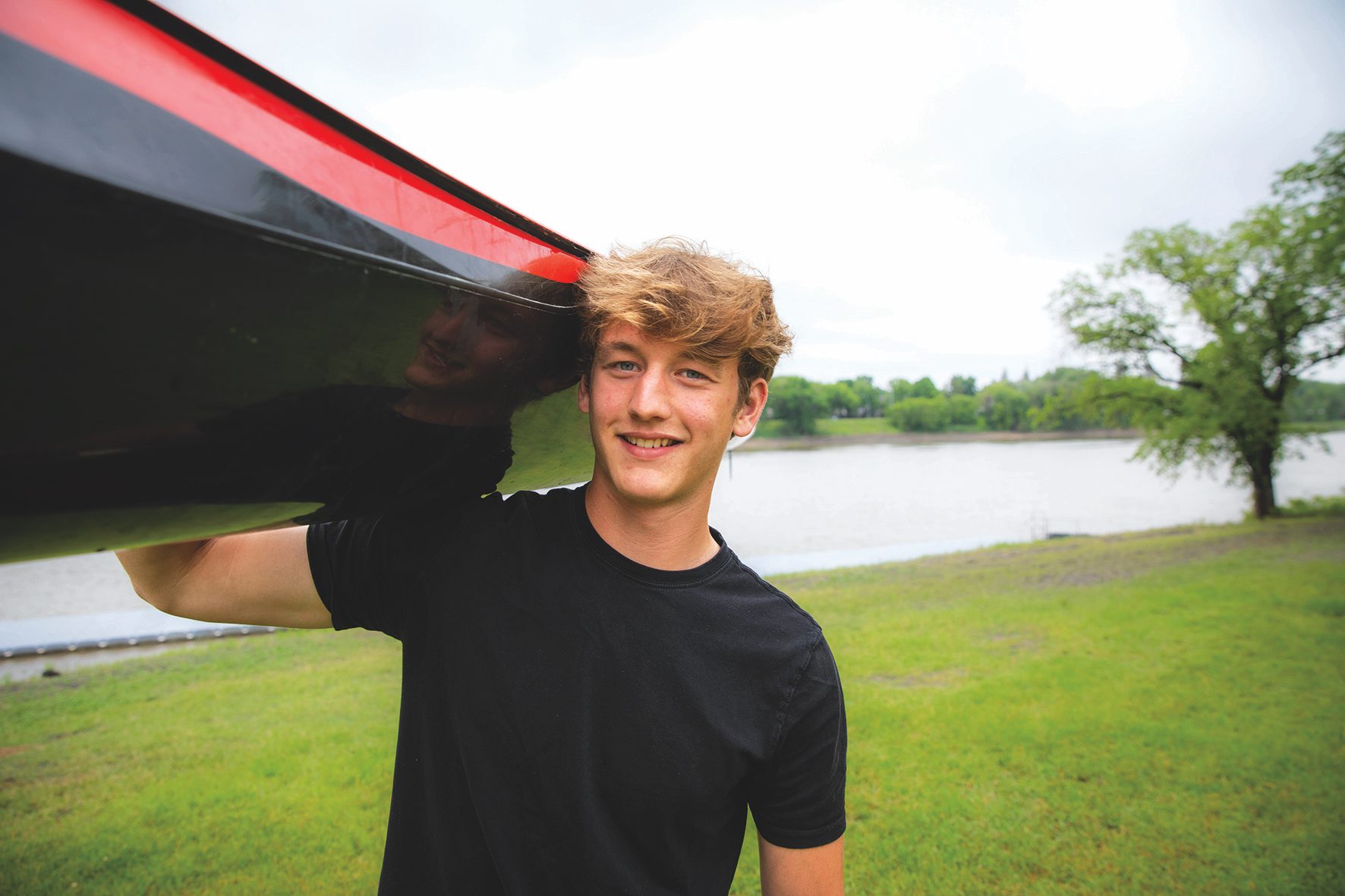
Contact Us
321 - 145 Pacific Avenue
Winnipeg, Manitoba, Canada,R3B 2Z6
x 204-925-5737 A info@masrc.com
Quick Links
We acknowledge that the Manitoba Aboriginal Sports & Recreation Council Inc. (MASRC) operates on the ancestral lands covered by Treaty 1, 2, 3, 4, 5, 6, and 10, as well as the lands of the unsigned Dakota Nations. These territories are home to the Anishinaabeg, Anishininewuk, Dakota Oyate, Denesuline, and Nehethowuk Nations, the Inuit in the north, and the National Homeland of the Red River Métis.
As an Indigenous organization, the MASRC is committed to advancing the Truth and Reconciliation Commission of Canada's Calls to Action #87 - 91, which highlight the role of sports and recreation as tools for empowerment and reconciliation with Indigenous communities.
